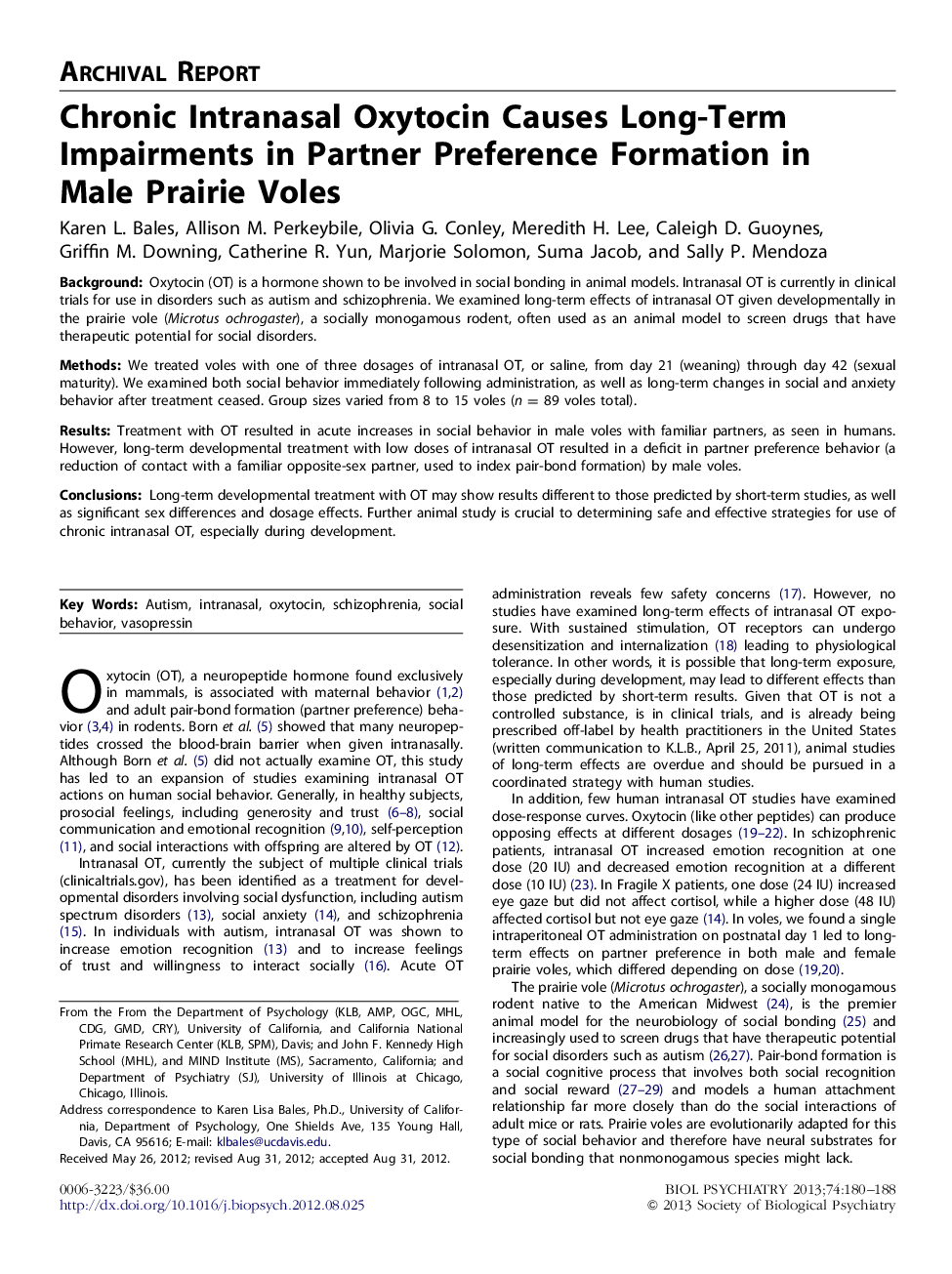| Article ID | Journal | Published Year | Pages | File Type |
|---|---|---|---|---|
| 6227400 | Biological Psychiatry | 2013 | 9 Pages |
BackgroundOxytocin (OT) is a hormone shown to be involved in social bonding in animal models. Intranasal OT is currently in clinical trials for use in disorders such as autism and schizophrenia. We examined long-term effects of intranasal OT given developmentally in the prairie vole (Microtus ochrogaster), a socially monogamous rodent, often used as an animal model to screen drugs that have therapeutic potential for social disorders.MethodsWe treated voles with one of three dosages of intranasal OT, or saline, from day 21 (weaning) through day 42 (sexual maturity). We examined both social behavior immediately following administration, as well as long-term changes in social and anxiety behavior after treatment ceased. Group sizes varied from 8 to 15 voles (n = 89 voles total).ResultsTreatment with OT resulted in acute increases in social behavior in male voles with familiar partners, as seen in humans. However, long-term developmental treatment with low doses of intranasal OT resulted in a deficit in partner preference behavior (a reduction of contact with a familiar opposite-sex partner, used to index pair-bond formation) by male voles.ConclusionsLong-term developmental treatment with OT may show results different to those predicted by short-term studies, as well as significant sex differences and dosage effects. Further animal study is crucial to determining safe and effective strategies for use of chronic intranasal OT, especially during development.
